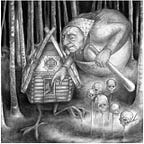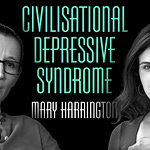Perhaps the most life-saving idea I garnered for life as a mum, from training as a psychotherapist, was coined by the great child psychologist Donald Winnicott: the phrase “good-enough mother”. In Winnicott’s view, mothers don’t need to be perfect or all-enveloping - in fact it can be better if we’re not quite perfect!
Growing up is about gradually moving from a state of total dependence as a baby, toward adult autonomy; part of that, inevitably, is about our earliest caregivers gradually letting us go, as it becomes appropriate to do so. I remember moments of sadness when my own baby daughter became able to do things for herself that previously I’d done for her, and struggling sometimes to step back and let her grow. I don’t think mothers ever stop worrying that they’re doing it wrong, somehow or other. There is so much pressure on mothers now to be all-sacrificing and perfect in every way; so I’ve always found comforting the idea that it’s okay to be a ‘good-enough mother’. That is, a mother who, to the best of her ability, tries both to nurture and also - when appropriate - to let go, and to accept that doing this is likely to involve some conflict, and some error. And that when there is conflict or disappointment, repairing these ruptures is part of what helps to shape a child’s sense of themselves as a separate person.
At least I hope this is right. In the same context, a theme I’ve returned to a few times recently those ways mothering can go off the rails not through lack of nurture and caring, but its excess. In response to discussion of this theme in last year’s essay Devour Me, Mummy, at this Substack, plus the Devouring Mother chapter in Feminism Against Progress, I heard from Dr Brooke Laufer, a clinical psychologist practising in Illinois, USA with a clinical interest in the same theme. Brooke specialises in perinatal psychosis, and is working on a book exploring the Devouring Mother archetype, via cases of maternal infanticide. We recently connected for the conversation shared here.
Brooke reports observing a common phenomenon in her own clinical practice, especially when working with parents and distressed teens: a kind of everyday form of Devouring Mother that she calls “the too-good mother”. That is, a kind of preoccupied mothering where, unlike Winnicott’s “good-enough mother”, the mother seeks compulsively to avoid subjecting her child to any experience of conflict, error, rupture or repair, and instead endeavours keep him or her indefinitely enveloped in a kind of figurative womb.
This is broadly the same phenomenon described recently by Abigail Shrier in her latest book, Bad Therapy, which explores institutional forms of the too-good mother, for example in schools and therapeutic culture. Brooke and I discussed Shrier’s work, and the too-good mother archetype: why is this happening now? And how can we address it? Importantly, how do we even talk about this, without it just becoming another stick to beat mothers with?
Sharing audio is an experiment for me and this is not very polished - please bear with me! But Brooke is such a warm and thoughtful analyst of the “too-good mother” I think you’ll enjoy hearing from her.
You can find out more about Brooke at her website here.
Her book is published on 2 July.






